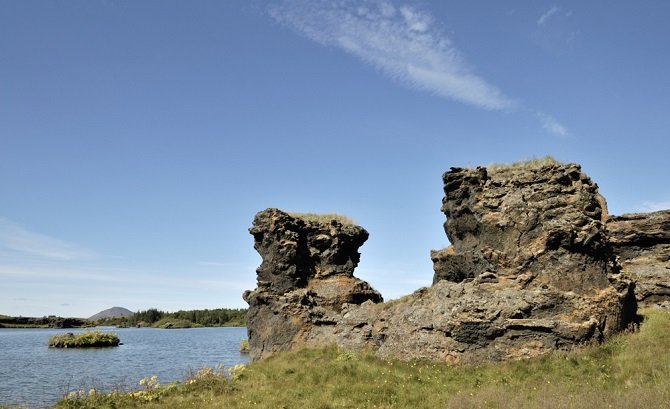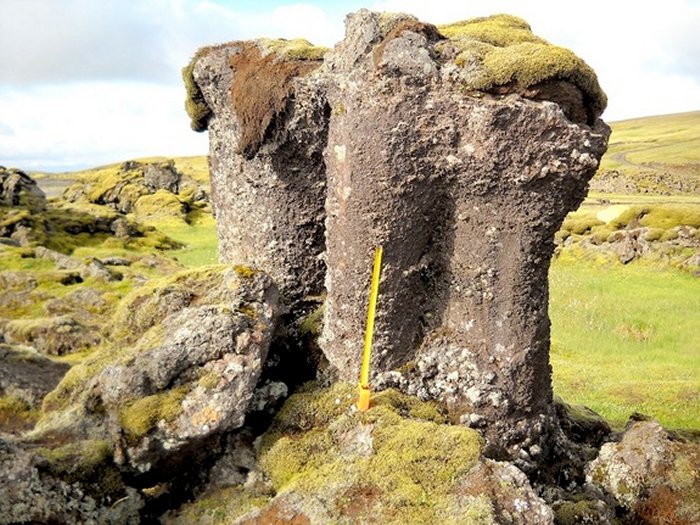MessageToEagle.com – In the Skaelinger Valley on Iceland there are several very unusual hollow pillars. According to local legends the rock pillars were fоrmеd bу аngrу trolls thrоwing thеm at еасh other. Some of the tallest pillars are 8 feet (2.4 meters) high, and up to 3.3 feet (1 m) wide. Scientists studied the formations and knew that rather than trolls, these pillars were a result of mixed water and lava flow.
The mystery was how pillars like these could form on land. Normally, when water and lava meet, water either drowns the lava, forming pillow-like structures, or the lava heats the water in a flash till it turns to steam that explodes It took a while, but finally, scientists solved the pillar mystery.
According to Tracy Gregg, a geologist at the University at Buffalo in New York, at mid-ocean ridges, or points in the deep ocean where the continental plates are peeling apart, lava seeps out of the ocean floor. Hot water rises up through this pillow lava and cools the nearby lava into rock, and as lava levels rise, spires grow, and remain even after lava flows have ebbed.
But no one had ever documented such pillars on land.

Gregg became intrigued with the hollow rock formations. She and her graduate student Kenneth Christi examined the formations.
The two scientists concluded that Skaelinger’s odd formations formed just like underwater lava pillars, during the famed Laki Eruption of 1783, when a volcanic fissure in southern Iceland oozed lava for eight months. That eruption was so big that it killed at least 50 percent of the island’s livestock and a quarter of its population.

Credit: Tracy Gregg
As slow-moving lava inched its way across the Skaelinger Valley, the lava created a temporary dam on the river that flows through the valley, probably forming a small pond, Gregg said. The meeting of slow-moving lava and water formed spires similar to those found deep in the ocean.
See also: World’s Largest Underground Lake Lies Inside The Dragon’s Breath Cave
Once lava levels in the valley fell, the hardened, hollow pillars remained.
Gregg thinks it is possible that lava pillars may occur elsewhere on Earth. These spires, born in past eruptions, can also provide insight into the historical climate.
MessageToEagle.com
Expand for referencesReferences:
Live Science






